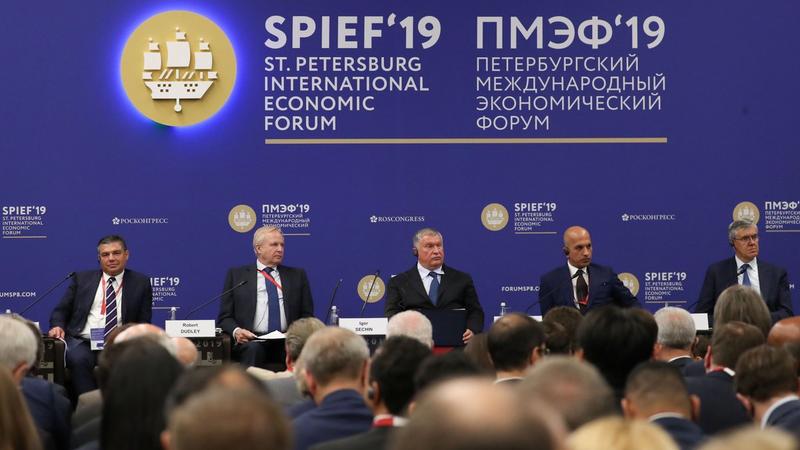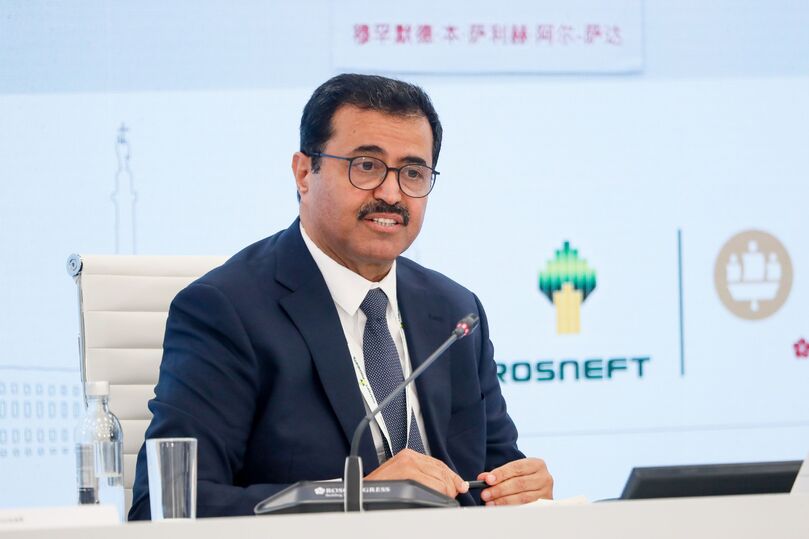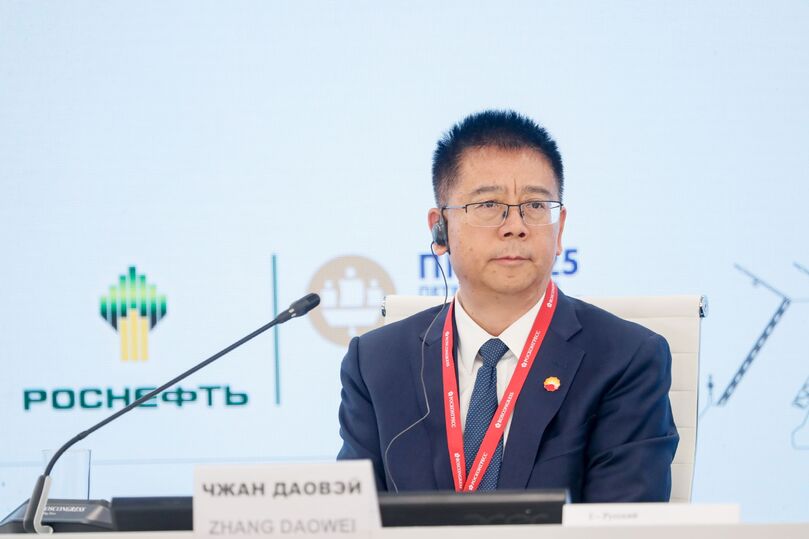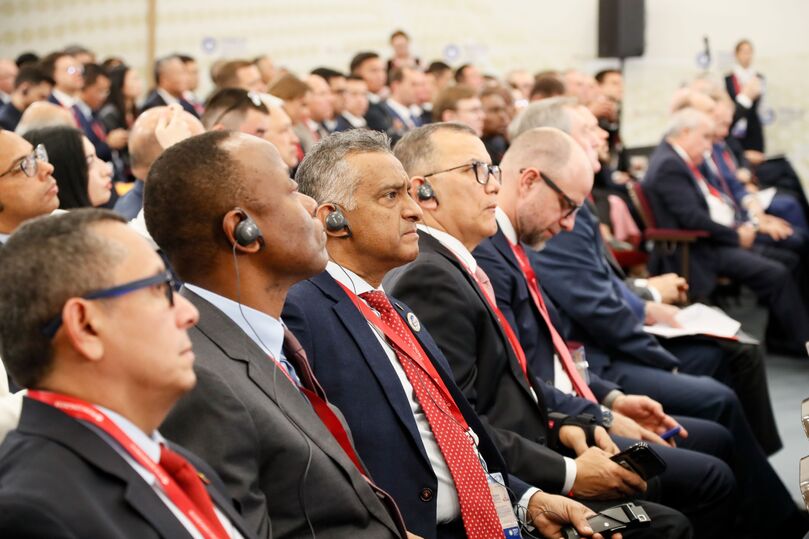
The Energy Panel at the 28th SPIEF discussed current trends in the global energy market.
Leading industry experts, politicians, scientists, government officials, and heads of major international energy companies listened to Igor Sechin`s report, «The Odyssey of the World Economy in Search of the Golden Fleece. The New Face of Global Energy,» and discussed the future development of the world energy market.
The experts` assessments and forecasts largely aligned with the visionary concept for industry development presented by the head of Rosneft. In his report, he stated that the current state of global energy is in a phase of forming a new structure, driven by a multi-fold increase in electricity consumption, which will be supplied by both fossil fuels and renewable energy sources (RES). According to him, the optimal solution today is a «synergy of traditional and alternative energy sources.»
ENERGY TRANSITION WITHOUT A TRANSITION
Mohammed Bin Saleh Al-Sada opened the discussion by noting the depth of the analysis. «It was comprehensive — the way you showed that progress and energy are inseparable,» Al-Sada addressed the speaker.
«We are essentially not undergoing any transition away from hydrocarbons,» he concluded, emphasizing that the shift to RES is being imposed on the industry and the public.

«This is food for thought: are we really transitioning away from fossil fuels to renewables?» Al-Sada asked the audience. «If this trend continues, we may face energy shortages. This is not just my personal opinion, but what a large number of analysts, including the International Energy Agency, and other respected experts say, who in their reviews emphasize the importance of sufficient investment in the hydrocarbon sector. Otherwise, we will face the risk of a primary energy shortage!»
THE FUTURE IS IN SYNERGY
Zhang Daowei, Vice President of China`s CNPC, noted that he listened to the report with interest. In his speech, the top manager of the Chinese company expressed similar assessments of the paths for global energy development, particularly regarding the need for synergy between traditional and new energy sources.
«We have always believed that under the course of energy transition, it is necessary to adhere to a synergistic, comprehensive development of traditional and new energy sources, fully consider the specifics and level of development of our countries` markets, properly link the energy transition with energy security, and promote a fair and sustainable model of energy transformation,» Daowei stated.

According to the Vice President, within this philosophy, CNPC, on the one hand, continues to increase the volume of exploration and development of oil and gas fields within the country and import high-quality resources from abroad, including strengthening long-term cooperation with Russia in hydrocarbon trade. On the other hand, CNPC actively adheres to a «green,» low-carbon development strategy and implements a «three-step strategy» combining oil and gas projects with the use of wind, solar, geothermal, hydrogen technologies, and carbon capture technologies.
Simon Aloysius Mantiri, President and CEO of Indonesia`s Pertamina, noted that the company follows a dual growth strategy based on both traditional resources and low-carbon solutions. Natural gas plays a significant role in the country`s energy balance.
The head of Pertamina essentially reiterated the thesis presented in the report and specifically emphasized that by achieving a balance of energy sources and a comprehensive approach, the company can ensure high rates of economic growth while simultaneously pursuing carbon neutrality.
P.M.S. Prasad, Executive Director of Reliance Industries, noted that India does not choose between energy access and innovation: «It integrates both. By developing scalable, context-specific solutions, it addresses local priorities while making a significant contribution to global sustainability. From rural microgrids to energy-efficient data centers, India is turning its potential into a strategic asset.»
He emphasized that international partnerships play a vital role in these large-scale efforts: «Energy remains a key cornerstone of strategic relations between India and Russia. India highly values this trusted partnership and appreciates the cooperation built over decades.»
NUCLEAR POWER PLANTS ARE NOT WRITTEN OFF
The keynote report at the Energy Panel particularly highlighted the growing global interest in nuclear power generation and, consequently, the increase in investment in this area.
Panda Madhusudhana Shiva Prasad, in turn, speaking about the prospects for India`s energy development, particularly stressed the significant role of nuclear power generation: «Gas, RES supported by energy storage systems and a reliable power grid, as well as nuclear energy will play a key role. India`s ambitious nuclear program, including small modular reactors, reflects its commitment to long-term energy security and decarbonization.»
The revival of interest in investing in NPP construction was noted in the speech by Uzbekistan`s Minister of Energy, Jurabek Mirzamakhmudov. He spoke about joint plans with Russia to build two units of 55 megawatts each, and two units of VVER-type reactors (water-water energetic reactor). The head of the ministry also reported that power plants burning gas are being installed in the country, hydropower is developing, the share of renewable sources is increasing, and storage systems are being created simultaneously.
ENERGY SECURITY COMES FIRST
Delcy Rodríguez, Executive Vice President of the Bolivarian Republic of Venezuela, in her speech supported the report`s thesis that energy security issues should be paramount.
«We always advocate for the energy transition to be carried out responsibly, taking reality into account, to avoid abrupt changes that could jeopardize energy security,» said Rodriguez.

She named the main components of a stable future energy system: energy security, reliable supply, accessibility for all, and respect for nature — with minimal environmental impact.
Rodriguez considers illegal sanctions against producing countries and the hegemony of the dollar as the main threats to energy security.
Nobuo Tanaka, Chairman of the Supervisory Board of the Japanese government`s non-profit initiative for low-carbon technologies development, in turn, noted that the answer to energy security issues is always related to diversifying supply sources, improving energy efficiency, and seeking alternative energy sources, including renewables, nuclear energy, and market regulation through predictable policies.
CONTRARY TO LOGIC
Discussion participants drew attention to political events of recent decades and stated that today geopolitics shapes the directions of economic cooperation. This is often contrary to the logic of market expediency and economic efficiency.
«Geopolitics is a factor in the world economy of the 21st century. Geopolitical interests are precisely what united the BRICS countries. The criterion for membership is not applying sanctions against other members of the organization,» said academician Alexander Dynkin of the Russian Academy of Sciences.
He noted that European bureaucrats are concerned about a complete rejection of energy supplies from Russia by 2027. «The increase in costs undermining the EU`s competitiveness does not stop them,» the academician noted and recalled that while the US GDP surpassed the EU`s GDP by only 12% in 2014, last year the American economy was already 50% larger than the European one.
DIGITAL REVOLUTION
Igor Sechin`s thesis in the report that the digital revolution opens a new era in the development of the oil and gas industry received a warm response from the audience. In particular, David Gadzhimirzaev, General Director of the oilfield services group TOFS, emphasized the importance of ensuring the accessibility, stability, and reliability of resources, which can be provided by new technologies that will reduce the cost of lifting barrels to the surface.
«We all know that the energy strategy-2050 was approved this year, which includes the fact that by 2050, about 70% of Russia`s production will come from hard-to-recover reserves. Therefore, we, in turn, are not only working on expertise but also on the production of new technologies,» said Gadzhimirzaev.











